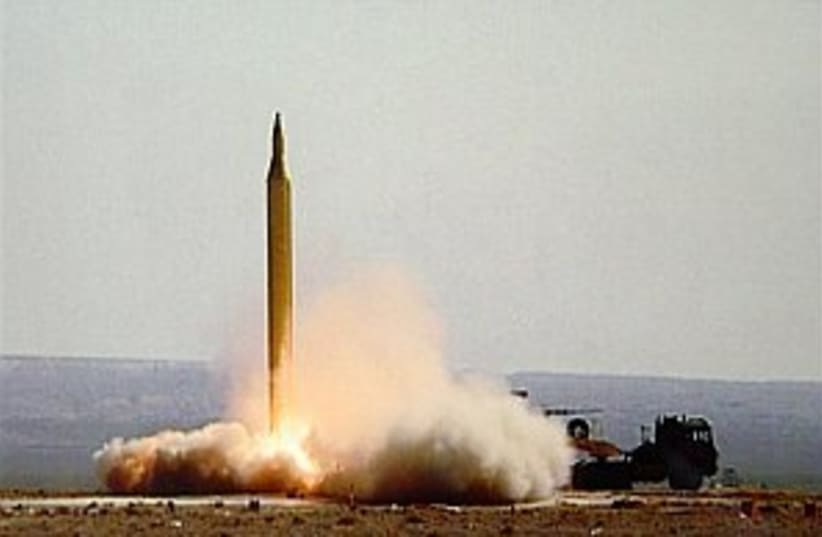| THE IRANIAN THREAT | |
| JPost.com special: news, opinion, blogs and more |
Iran: US should stop Gulf maneuvers
Iran test-fires 3 new naval warfare missiles with range of about 170 km.


| THE IRANIAN THREAT | |
| JPost.com special: news, opinion, blogs and more |